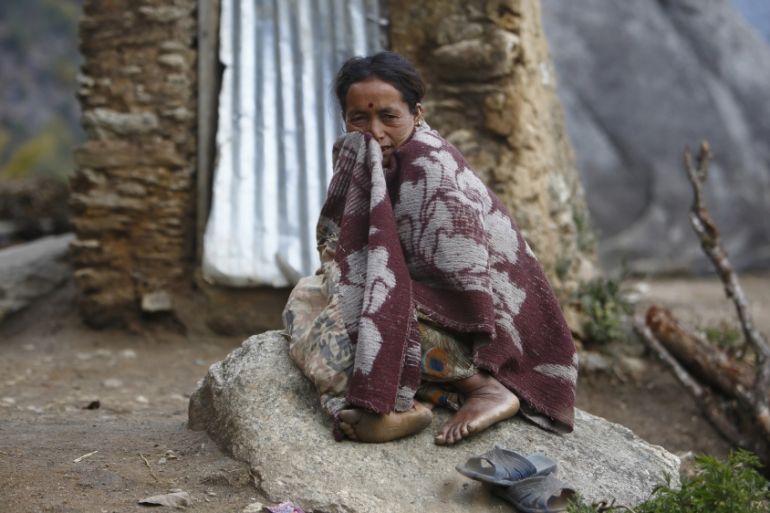Ending menstruation banishment only a start
The practice – ‘chhaupadi’ – was banned by Nepal’s Supreme Court in 2005 but remains prevalent in the remote west.

Last month, when 19-year-old Tulasi Shahi died of a snake bite in west Nepal, social media went abuzz because international media started covering her tragic death.
Yet a few weeks earlier, when another young woman died in similar circumstances, the news did not even come out.
Keep reading
list of 4 itemsTen years after Chibok girls kidnapping: One woman’s struggle to move on
Poland lawmakers take steps towards liberalising abortion laws
Polish lawmakers debate reforming strict abortion laws
Both victims had been sent to “chhaupadi”, an outhouse where menstruating women are banished to for five days a month.
Now finally some good news has come. On Wednesday, parliament criminalised chhaupadi.
Girls and women will be able to report to the police if they are made to sleep in those dank, dark cells.
READ MORE: Nepal criminalises isolation of menstruating women
But will they report on their fathers, mothers, husbands or in-laws?
And even if they do, will their families just pay the $29 fine and still make the women sleep in the huts?
When Tulasi died, some reporters were shocked that her parents said they would still follow the archaic custom.
This does not surprise me at all.
Worse than animals
Whenever I’ve been to far west Nepal, where these customs exist, I’ve often seen women treated worse than animals.
I’ve met women who’ve travelled to India to determine the sex of their child so that female babies could be terminated.
I’ve met girls as young as 14 lamenting that their education will be curtailed soon when they are married off. I’ve heard them describe themselves as “burdens” to their families.
|
|
The menstruation huts are an expression of this larger attitude. In these areas, locals believe that tigers will attack their cattle if menstruating women are allowed to inside their house.
“The gods will be angry,” I was often told. So, the bleeding women are placed on the front lines – before the cattle – just to protect the cattle from predators.
But it would be wrong to criticise people in the far west alone for having these attitudes. Even in the capital, Kathmandu, when women bleed they are described as being “nachhune” or untouchable.
On Thursday, right after the bill was passed, a prominent banker put on his Facebook page the question of the “psychological sheds” that Hindu women of Kathmandu are put into.
This includes being banned from kitchens and prayer rooms, family rituals and temples. These are educated families where women are made to sit apart, so their monthly “untouchability” will not soil anyone.
I’ve seen friends sit in corners while their food is pushed towards to them. They are told not to touch men, in case they pollute them.
One friend told me that her father-in-law wanted a separate room built in the house so that she could use it during her period.
READ MORE: Nepali teen dies from snake bite in ‘menstruation hut’
Another friend said her mother rolls the carpet away, so her feet won’t pollute furnishings during menstruation.
The reason given to them – to us – is that without these precautions, the spirts will be angry. How different is this reasoning from that in the far west?
These kinds of humiliating and degrading treatments are not under the purview of the act.
It will be a year before the law comes into effect. Until September 2018, activists are hoping to change the attitudes of people towards chhaupadi and also train the police.
But there are broader attitudes towards menstruation that need to be changed, and much deeper thought about how we in Nepal perceive women and girls.
|
|